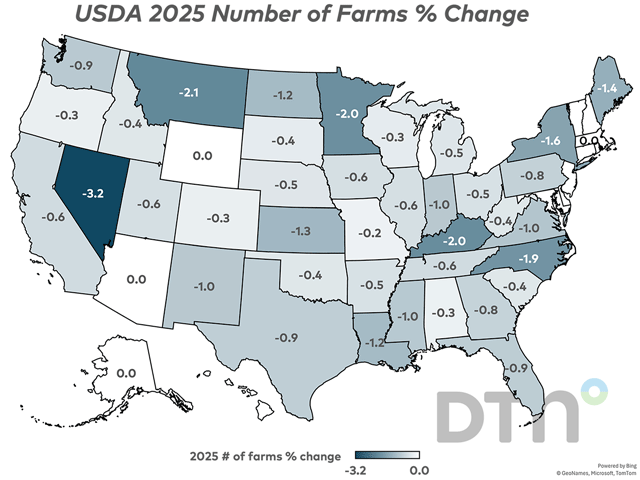Ag Policy Blog
The Agricultural Act of 2014, aka the Farm Bill
The simplicity of the farm bill conference report's final name might be one of the best concepts in bill --- the "Agricultural Act of 2014."
The Agricultural Act of 2014 got a variety of early reactions after its release Monday evening.
House Majority Leader Eric Cantor, R-Va., threw his support behind the legislation and noted it will be voted on Wednesday.
“I congratulate Chairman Lucas, the House Committee on Agriculture, and the Farm Bill Conferees on their hard work in finalizing a five-year Farm Bill, which will be voted on by the House of Representatives on Wednesday," Cantor said. "This was not an easy task, and it took hard work to arrive here – for that our conferees should be commended. Despite the Senate’s unwillingness to challenge the status-quo and include all of the critical reforms to important programs like the Supplemental Nutrition Assistance Program, the finalized Farm Bill will include a new initiative that allows states to implement work requirements for able-bodied adults as well as initiatives to help move individuals from dependence to self-sufficiency and independence."
The American Soybean Association announced its support for the farm bill and its statement provided a thorough summary of some commodity and crop insurance changes in the bill. ASA cited that the bill provides "most notably a flexible farm safety net that include a choice between a price-based and revenue based risk management tools and maintains the decoupling of payments under both programs from current planted acres."
Farmers will make a one-time decision to enroll in a revenue program known as Agriculture Risk Coverage (ARC) or a target price program called Price Loss Coverage (PLC).
The bill eliminates Direct Payments and the Average Crop Revenue Election program.
P[L1] D[0x0] M[300x250] OOP[F] ADUNIT[] T[]
“The bill establishes practical risk management programs that will protect us in difficult times. That’s been our top priority from day one,” said Ray Gaesser, president of ASA. “But beyond that, we support this bill because it strengthens crop insurance; includes a streamlining and optimizing of conservation programs; funds critical energy and agricultural research initiatives; and invests in the trade development programs that are so critical to the soybean industry.”
Direct payments aren't exactly dead for everyone. For upland cotton producers, the bill keeps direct payments for 2014 at 60% of the base acres and extending that to 36.5% of base acres for 2015. This will only apply in counties where the crop insurance program STAX is not offered.
ASA noted that in the crop-insurance title, "the bill makes enterprise units permanent, allows growers to purchase enterprise unit coverage for both irrigated and dryland crops, authorizes a new Supplemental Coverage Option (SCO), and will help to strengthen the next generation of agriculture by providing a 10% increase in premium support to beginning farmers and ranchers."
Sen. Charles Grassley, R-Iowa, came out with some criticism of the bill after his payment-limit provisions were basically scrapped. The House and Senate had passed bills with $50,000 payment caps for ARC or PLC but those were changed in conference. The bill instead would have a $125,000 payment cap applying to PLC, ARC, marketing-loan gains and loan-deficiency payments. That amount doubles to $250,000 for married couples.
Other Midwest Republican senators were not happy as well. Sen. Pat Roberts of Kansas said the farm bill goes the wrong direction for both farmers and taxpayers because of the PLC program and its high target prices. “The new Price Loss Coverage Program repeats a classic government subsidy mistake – setting high fixed target prices – which only guarantees overproduction with long periods of low crop prices, leading to expensive farm programs funded by the taxpayers,” Roberts said. “This program simply creates planting and marketing distortions, instead of letting our producers respond to the free market and decide their crops based on supply and demand.”
“It appears the payment limit and actively engaged reforms, which Congress overwhelming approved, have been watered down to the point they will likely have little to no effect," Grassley said. "It’s bad for agriculture, it’s bad for taxpayers who are worried about the debt, it’s bad for our credibility with trading partners, and it’s bad for the future of farm programs."
As far as income, the conference report allows farmers to keep collecting farm-program payments as long as adjusted gross income stays below $900,000.
COOL
The conference report lets country-of-origin labeling stand as it is, but does require USDA to conduct an economic analysis of its new rule. The National Cattlemen's Beef Association and National Pork Producers Council are planning a press conference on Tuesday to argue that the farm bill now opens up the U.S. to trade retaliation from Canada and Mexico.
King amendment
The conference report opted not delve into the push by Rep. Steve King, R-Iowa, to block state and local government from prohibiting agricultural products approved by USDA or FDA. The conference report managers' statement simply says the language is not part of the final bill.
Follow me on Twitter @ChrisClaytonDTN
© Copyright 2014 DTN/The Progressive Farmer. All rights reserved.




Comments
To comment, please Log In or Join our Community .